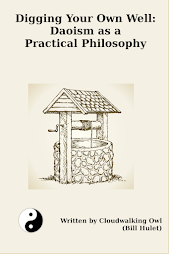One of the concepts that people take for granted, but which I have always had a hard time understanding is that of "discipline". People tell people who eat too much or smoke that they should "learn to have self-discipline". The problem is that this concept is based on the idea that people always know the right thing to do, but do the opposite anyway.
My experience trying to stop smoking got me thinking about all of this. I was able to stop smoking over and over again, but each time I started again, it wasn't a case of my losing any sort of "hold" over myself, but rather a case of my becoming depressed and no longer seeing the reason why I should care if I smoked or not. There is a subtle issue here.
As I see it, most of the things we do in our life are habits. The person who exercises regularly doesn't have self-discipline, he just has a healthy habit of exercising regularly. Where discipline comes into play is when someone consciously chooses to change their habits so they stop, for example, slumping in front of a television all night and instead decide to spend the time exercising instead. The discipline comes into play for the month or so that it takes to create the habit that results in inertia carrying someone into doing exercise instead of watching "the Simpsons".
A key component of this self-discipline comes from keeping our "eye on the prize" so we don't get depressed and start thinking "what's the use" (as in my example of resuming smoking.) Another part comes from not allowing ourselves to be distracted to the point where we forget that we wanted to change ourselves and create a new habit. Even if I want to exercise, I might be halfway through a bag of potato chips and "Family Guy" before I remembered that today was the day I was going to start exercising.
As I see it, a key element of developing enough self-discipline in order to change our habits comes from reminding ourselves that we exist and have volition. In Daoist terms, I see that this is what various teachers meant when they said we need to "hold onto the One". My primary source of this comes from the Nei Yeh, but it is also something strongly suggested by the Celestial Master in the Taiping Jing. This is very similar to the Buddhist idea of "mindfulness", but I think it has a very different resonance in that the Buddhist ideal is that of passive watchfulness. The Buddhist image reminds me of someone sitting quietly and watching the world around them, whereas the Daoist one seems to me more of someone holding onto the "core" of their being so they can affirm themselves in a world of distractions. This makes sense to me as I see the goal of Buddhism to be Nirvana, which is a negative concept of letting go of bondage to the earth; whereas the goal of Daoism is to become a Xian (what I call a "realized man") or a being that is still very much engaged with the world around him, but is able to transcend many of his previous limitations.
The connection between "holding onto the One" and "self-discipline" also makes sense of the importance of "kung fu" in Daoist practice. It doesn't really matter where one puts their dedicated practice---whether it is writing poems, gardening, cooking, making quilts or doing taijiquan. The fact that you have to "hold onto the One" in order to achieve any sort of progress in the art means that you are also treading the path towards realization.
Tuesday, February 14, 2012
Subscribe to:
Post Comments (Atom)







1 comment:
As an autistic bloke, my life is ruled by what I call patterns (which aren't so dissimilar from habits). Once a pattern is established -- whether of my own volition or via the volition of others -- I become very anxious if my day doesn't follow these patterns to a tee. The transition from one established pattern to a new one always is difficult and causes me much misery.
That said, I really like your formulation that self-discipline is the motor to push us to change our habits or, in my case, patterns. Maybe, just maybe, your post will be the spur to help me push myself out of a few of the ruts I have constructed for myself.
Post a Comment